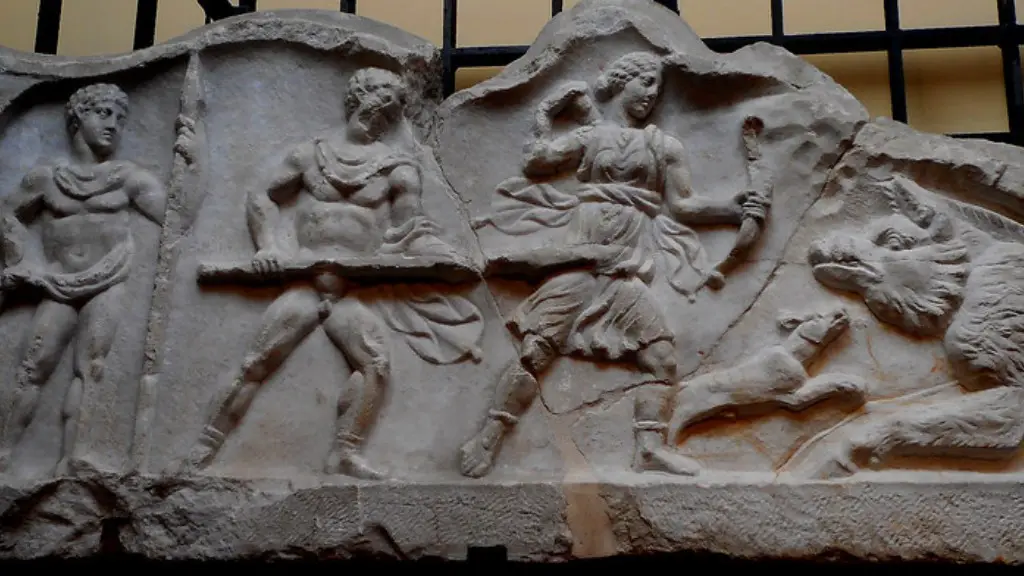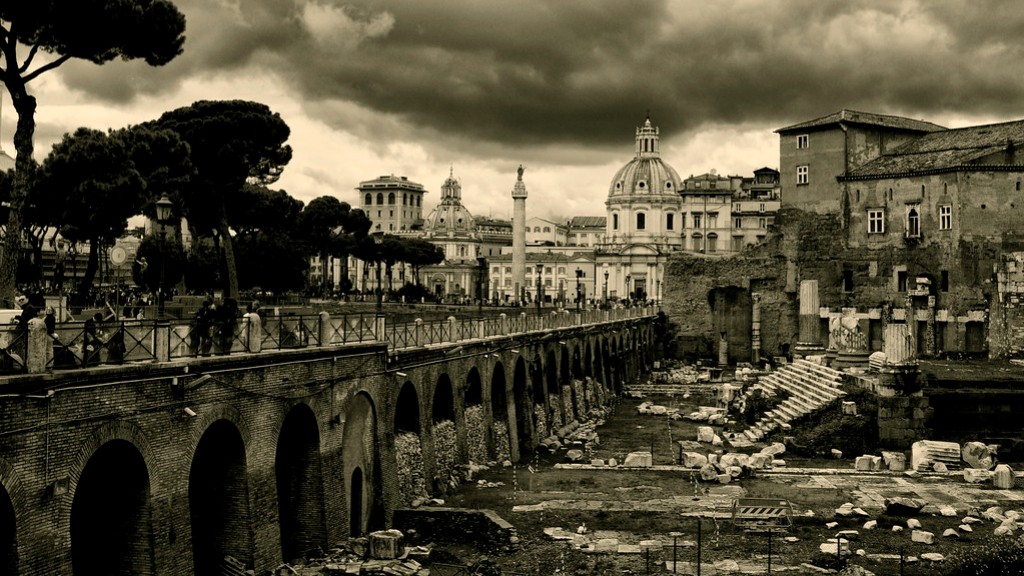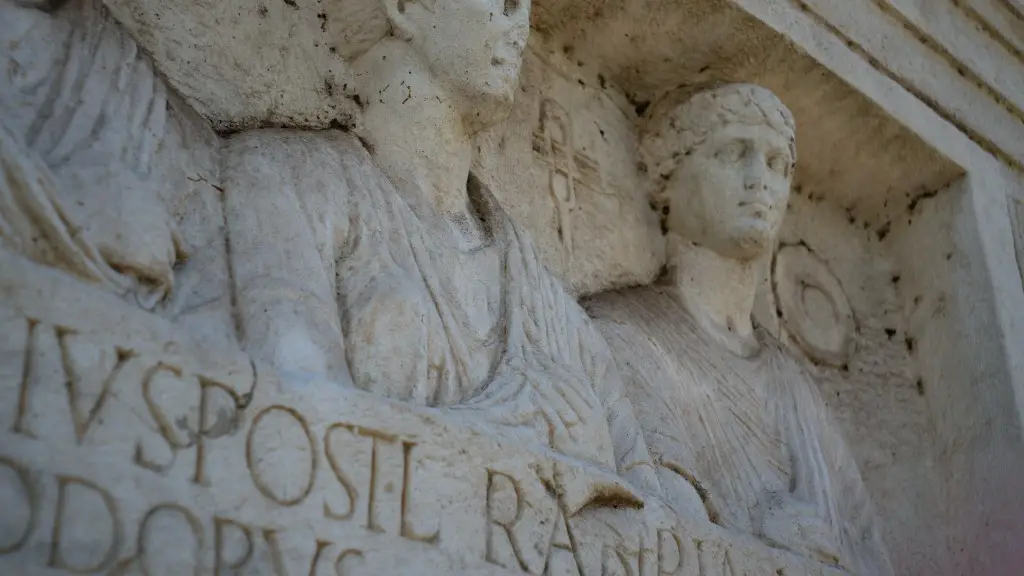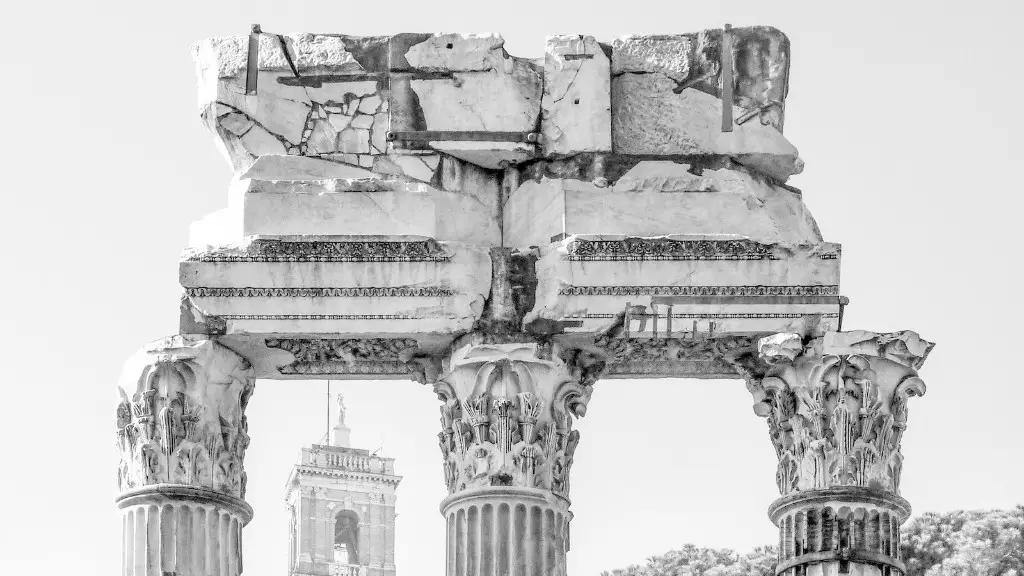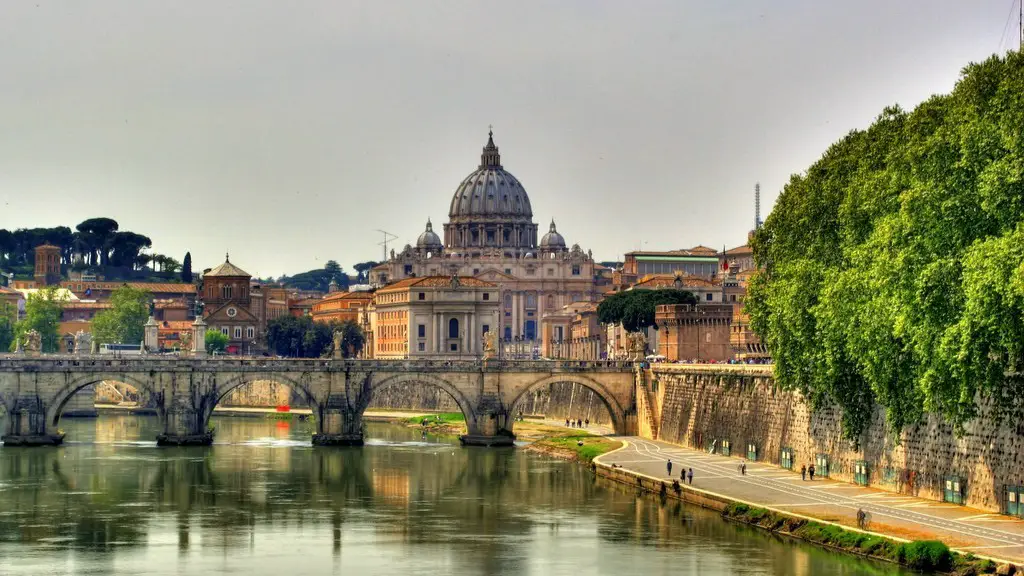Influence of Realpolitik
The downfall of ancient Rome was attributed to multiple factors, but the shift from traditional to Realpolitik had perhaps the most significant impact in its unraveling. The transition from republicanism to autocracy was a gradual one, but it essentially entailed the concentration of power in the person of the Emperor, which ostensibly affected the Republic’s neutrality and diminished its citizens’ former trust in the government.
In the days of Ancient Rome’s Republic, citizens had high level of autonomy that enabled them to govern their localities. Open lines of communication between governors and provinces maintained harmony, increased citizen participation and enabled dissent where necessary.
One of the earliest examples of Roman Transition to Realpolitik occurred during the rule of Julius Caesar in 44 BCE, when he was declared “dictator for life”. The alarming rise of autocracy saw the establishment of the power of the Senate being ceded to one man, which acted against the spirit of Roman Republic and caused a severe deterioration of civil rights. Additionally, it caused a heightened sense of paranoia as more parts of government fell under his control.
The effects of Realpolitik grew exponentially as Rome continued to fall more and more from its traditional form of governance. Under the Empire, the Senate’s power was reduced significantly and military duties favoured those of the aristocracy. Citizens were denied the agency to be heard in their localities and felt increasingly disconnected from the government, leading to a deep resentment and fragmentation.
Financial Risk & Insecurity
Another major factor that acted as a catalyst to the fall of ancient Rome was the financial risk and insecurity experienced by its citizens as a result of the irresponsible economic policies of its leaders. In an attempt to maintain high levels of military presence, the Roman emperors faced heavy taxation of its growing populace. Julius Caesar’s fiscal policies such as the introduction of a poll tax exacerbated the issue of economic inequality, which caused tremendous economic insecurity in especially Third-Class citizens.
These taxations became more widespread as the Roman Empire expanded and more provinces were subject to imperial control. Such unreasonable accusations stirred massive discontent among the people and made them more vulnerable and unprotected. These oppressive taxes also worsened the already existent and severe gap between rich and poor and put citizens in a state of hardship and destitution.
The financial policies that aimed to please the ruling class kept Rome in a constant cycle of financial instability, an attitude which was further perpetuated by the neglect of autonomous local government systems. This left citizens feeling helpless and unmotivated and discouraged them from taking part in provincial affairs.
Political Unrest & Instability
Uncapped by economic and social instability, the fall of ancient Rome was also linked largely to popular resistance against oppressive rulers, civil strife and the presence of rogue factions. The emperor’s failure to properly reign in these disruptive factions allowed them to gain power and scale up on their mobilization and intentions.
A notable example of this would be the barbarian invasions and the power vacuum that ensued. Luguvalium’s 410 A.D invasion of Rome was a major event which featured a collapse of the Senate in its wake and disrupted the city’s hitherto culture of civility and respect for the rule of law. This profound event culminated in the decline of Roman power and eventual disintegration of the state.
In addition, the onset of Christianity acted as a major destabilizing factor. The power conflicts between the old religion and the new one caused a chaotic and disruptive environment. This further proliferated the decline of government power and weakened the Republic from the inside.
Internal Conflict
The internal dynamics of the ancient Roman Republic presented a significant threat to its stability. Over the years, its citizens had become increasingly dissatisfied with the government and its inabilities to adequately protect them. This sparked frequent revolts and led to a sense of internal unrest that eventually grew to an unmanageable extent.
The shifting of power to the Senate further caused internal conflicts as members sought to gain control of their province. This was exacerbated by the practice of bribery and the presence of the Praetorian Guards, whose loyalty to the Emperor made it incredibly difficult to keep the Republic in check. These deep-seated divisions and loyalties challenged the unity of the Republic and drove it closer to its downfall.
Ecological Changes & Overpopulation
The Roman Empire also faced significant challenges as a result of increasing ecological changes, widespread malnutrition and rampant poverty. Rome’s overpopulation had an astonishingly adverse effect on the city’s housing and agricultural crisis. The diet of the Roman citizen’s increased significantly with the expansion of the empire and the heightened levels of consumption affected the farming infrastructure.
The imperial government’s failure to implement effective market regulations caused a massive inflation of goods and goods prices, driving low-income workers further into poverty and leaving them unable to sustain their diets. Historical sources suggest that this caused a decreased productivity level and weakened the strength of its military forces.
Lack of Access to Resources & Education
In addition to the social, political and economic crises that Rome was facing, a great contributor to its downfall was its lack of access to resources and educational opportunities. This was largely attributed to the autocratic policy and its lasting effects. Whereas the lower classes had access to some form of education under the Republic, the introduction of Realpolitik reduced opportunities for education to the wealthy few.
This rendered a large population of citizens unable to understand their civic duties and hence prevented the republic from functioning optimally. Furthermore, the imperial government’s neglect of industry and commerce did not allow individuals to improve their lives and instead accentuated the social gaps between rich and poor.
Cultural Unrest & Declining Fear of the Gods
In the final years of Rome’s Republic, its culture began to suffer under the leadership of an autocratic state. A major contributing factor to the fall of Ancient Rome was the cultural unrest that ensued from the changing of the guard. The change from the old Roman gods to a new imperial system of worship only accelerated the decline of Roman culture, weakening the fear and respect for the gods.
The constant shifting of imperial power and subsequent resettling of policies weakened the bond between the people and their government, causing a sense of confusion and mistrust. In turn, this led to a deep-seated resentment towards the law and its application, eventually leading the citizens to become disillusioned with their government and the Roman way of life.
Changing Moral Standards
The changing moral standards of Rome were an additional factor in its downfall. The imperial government was accountable for the gradual decline of ethical values, as it slowly replaced traditional Roman virtues with civic envy and hasty judgement. This mindset slowly made its way onto everyday life, establishing a culture of money and urbanisation. The emphasis of vanity, honour and power gradually distanced itself from the traditional values of justice and piety.
What’s more, the constant reform of laws, taxation and society by short-sighted and corrupt politicians led to a complete cultural changing that was irreversibly damaging for the Roman Republic and its people. This disregard for tradition and law made it almost impossible for Rome to sustain itself, leading to its inevitable collapse.
